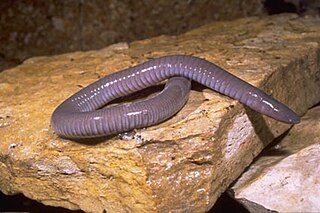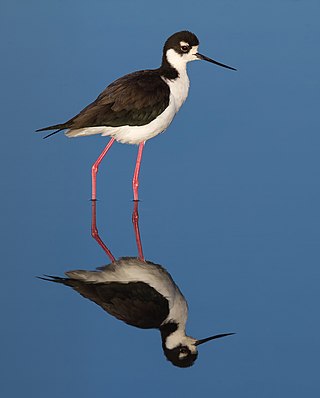
The snailfishes or sea snails, are a family of marine ray-finned fishes. These fishes make up the Liparidae, a family classified within the order Scorpaeniformes.

The Mexican hornshark is a bullhead shark of the family Heterodontidae. This shark is grey-brown in color, with black spots scattered on the fins and body. It has a cylindrical trunk, conical head, and small spiracles behind the eyes. The snout of the Mexican hornshark is very round and blunt. Like all members of the order Heterodontiformes, this shark has fin spines in front of both of its dorsal fins. The first dorsal fin originates before the pectoral fins, while the second dorsal fin originates behind the pelvic fins. The Mexican hornshark reaches a maximum length around 70 cm, but usually reaches between 50 and 60 cm on average. Young hornsharks hatch around 14 cm.

The Mexican deer mouse is a species of forest-dwelling rodent in the family Cricetidae. It is found in southern Mexico and throughout much of Central America.
The Mexican water mouse, Mexican fishing mouse or Goodwin's water mouse, is a species of semiaquatic rodent in the family Cricetidae. It has a restricted range in the state of Oaxaca in southern Mexico, Threatened by deforestation and water pollution, it is listed as Endangered by the International Union for Conservation of Nature (IUCN).

Dermophis mexicanus, also known commonly as the Mexican burrowing caecilian or the Mexican caecilian, and locally as the tapalcua or tepelcua, is a species of limbless amphibian in the family Dermophiidae. The species is native to Mexico and Central America, where it burrows under leaf litter and plant debris.

The Mexican dog-faced bat is a bat species of the family Molossidae from Central America. It is found from Nayarit in Mexico to Costa Rica at elevations up to 1500 m. It was formerly considered a subspecies of C. greenhalli. It roosts in deciduous and evergreen forest, and is usually found near small bodies of water.

Paraliparis is a genus of fish in the family Liparidae, the snailfishes. It is found in benthic, benthopelagic and pelagic habitats in all the world's oceans.
Paraliparis membranaceus is a species of snailfish only known from a single specimen of 57 mm standard length collected in Sarmiento Channel in the fjordlands of southern Chile.

The black-necked stilt is a locally abundant shorebird of North and South American wetlands and coastlines. It is found from the coastal areas of California through much of the interior western United States and along the Gulf of Mexico as far east as Florida, then south through Central America and the Caribbean to Brazil, Peru and the Galápagos Islands, with an isolated population, the Hawaiian stilt, in Hawaii. The northernmost populations, particularly those from inland, are migratory, wintering from the extreme south of the United States to southern Mexico, rarely as far south as Costa Rica; on the Baja California peninsula it is only found regularly in winter. Some authorities, including the IUCN, treat it as a synonym of Himantopus himantopus.
Paraclinus mexicanus, the Mexican blenny, is a species of labrisomid blenny native to reefs of the Pacific coast of the Americas from Baja California, Mexico to Ecuador. This species can reach a length of 4 centimetres (1.6 in) TL. It can also be found in the aquarium trade.
Anatoly Petrovich Andriyashev was a Soviet and Russian ichthyologist, marine biologist, and zoogeographist, notable for his studies of marine fauna of the Arctic and the Northern Pacific.
Peter Robert Last is an Australian ichthyologist, curator of the Australian National Fish Collection and a senior principal research scientist at CSIRO Marine and Atmospheric Research (CMAR) in Hobart, Tasmania. He is an elasmobranch expert and has described many new species of shark.

The Hawaiian stilt is an endangered Hawaiian subspecies of the black-necked stilt species. It is a long-legged, slender shorebird with a long, thin beak. Other common names include the Hawaiian black-necked stilt, the aeʻo, the kukuluaeʻo, or it may be referred to as the Hawaiian subspecies of the black-necked stilt.

Paraliparis selti, the blue Atacama snailfish, is a species of deep water snailfish that is native to the south-east Pacific Ocean hadal zone 6,714 meters under water in the Atacama Trench. P. selti is 83 millimeters in length total and 75.9 millimeters in standard length. its one of the 200 species of snailfish discovered in the southern hemisphere.
Paraliparis exilis is a species of snailfish found in the south-western Pacific Ocean.
Paraliparis freeborni is a species of snailfish found in the south-western Pacific Ocean.
Paraliparis megalopus is a species of snailfish found in the north-eastern Pacific Ocean.
Paraliparis acutidens is a species of snailfish found in the Atlantic Ocean, the Antarctic as well as the western part of the Scotia Sea.
Paraliparis kocki is a species of snailfish found in the Southern Ocean.
Paraliparis porcus is a species of snailfish found in the Atlantic part of Antarctic around Elephant Island.








